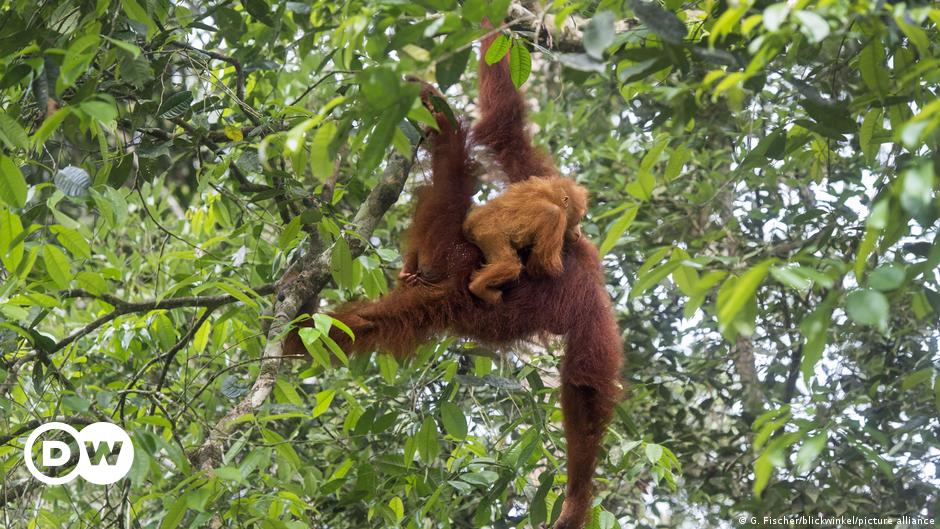Malaysia intends to present orangutans to nations that import its palm oil. The move aims to allay concerns that palm oil production is often linked to the destruction of the endangered apes’ habitats.
Malaysia has said it plans to present orangutans to major palm-oil-importing countries with the aim of boosting its credentials as a conserver of biodiversity.
The Asian nation is the world’s second-largest producer of the widely used commodity, whose production is blamed by environmentalists for fuelling the destruction of the great ape’s habitats in both Malaysia and Indonesia.
The move comes after the EU last year approved a ban on importing commodities, like palm oil, that are linked to deforestation.
Malaysia says the ban has been introduced to protect the bloc’s own oilseeds market.



I think the anger is directed and the agricultural conglomerates and the governments that have allowed those groups to pillage these places while selling out their countrymen, not the farm workers themselves or the citizens of those countries. Probably no matter the issue, that is likely the case. I know palm oil is important to many people, and colonialism is a lot of the cause of these issues for both the people and those that care about the local environments, as many times they are the same people.
Many people, myself included, don’t know much about the current Malay government, so the initial action being mistrust of something like this shouldn’t be a surprise. As people are realizing how much of our natural resources we’ve squandered for quick cash, I don’t fault them for being angry.
As you said though, it’s important to realize there are good and bad actors in all of these situations, plus many doing what they need to survive in many of these regions.
Very nice post, I admit I don’t know a lot about Malaysia either, but I’ve seen many times that they are working to make Palm oil production sustainable.
It’s easier for us to fight each other as individuals instead of focusing our dissatisfaction toward the ones causing these problems, so I didn’t want to see this sink down into that when everyone had valid criticisms. I want to see the people and environment be protected.
From looking it up quick, 90% of palm oil comes from Indonesia and Malaysia, so it is important to understand how it is being produced, so I’ve marked some things to read so I can get better informed. I’m glad you were brave enough to speak up when everyone was pretty fired up on the issue already.
Thank you, I was half expecting to be massively downvoted. Still I think it’s worth pointing out that this issue isn’t nearly as black and white as some wants us to believe.
In part because I feel I’ve been mislead myself, and usually it’s done in a propaganda like fashion.
We all get fed info from everywhere, it’s just our individual responsibility to filter through it and verify it. Nothing to feel guilty over, just post if the joy of the human experience. 🙃
This is absolutely true, but if the propaganda is dominating an issue, it can be hard to distinguish from something that is universally accepted, and seems it doesn’t need to be questioned.
Even going for the research requires strong critical thinking, as research is often paid for to show a specific wanted result by the customer.
This we have most famously seen with the tobacco and sugar industries. But it is really really common.
So to filter correctly is not always easy.
It will always be a challenge, but we’re also in an era where communication is available to us at the same capacity it is to the propagandists. We’ve got leakers and whistleblowers like never before. We also have crackpots who can do the same, but it’s much harder to isolate and silence those with positive agendas.
All we can do is keep trying to learn all we can and apply our critical thinking and share what we learn. I post a lot here and always try to show references, as itn no expert on anything, just someone with a love of learning.